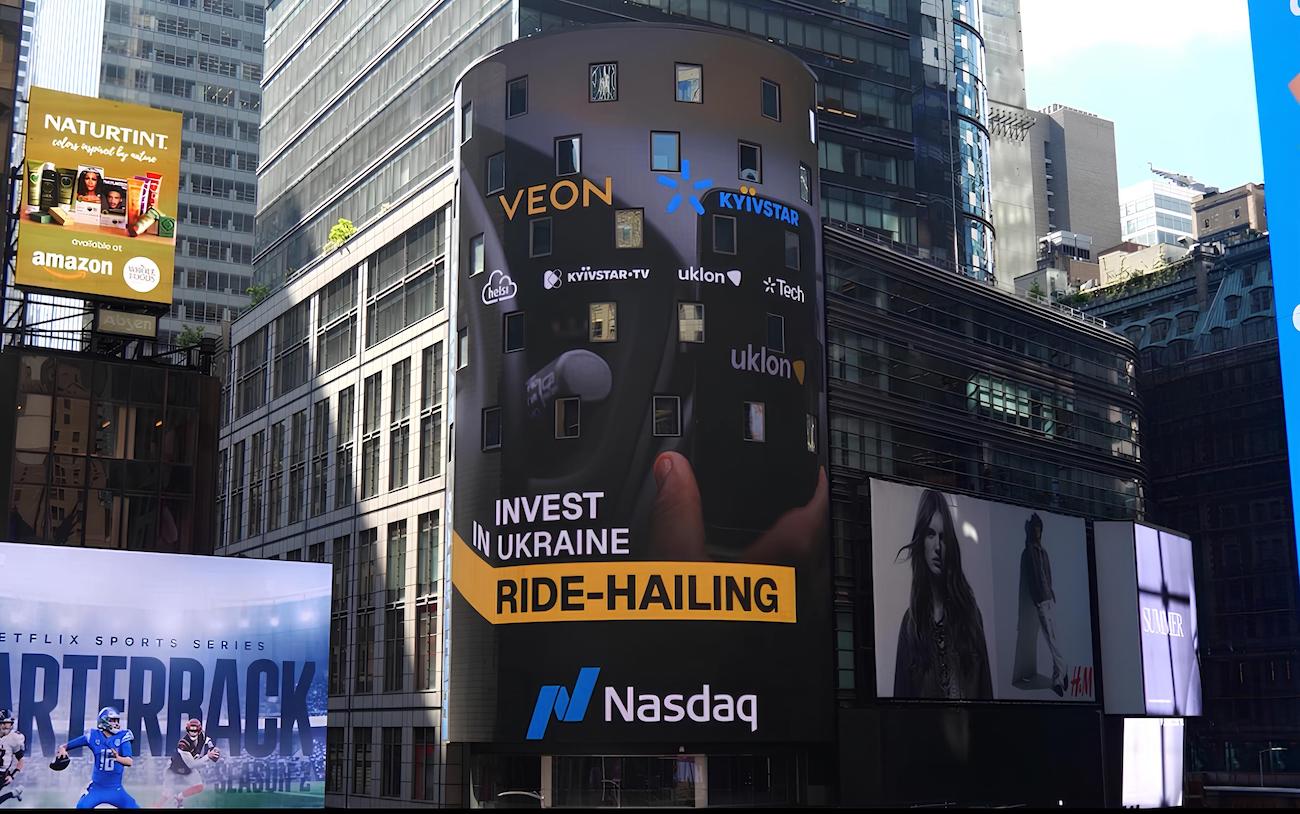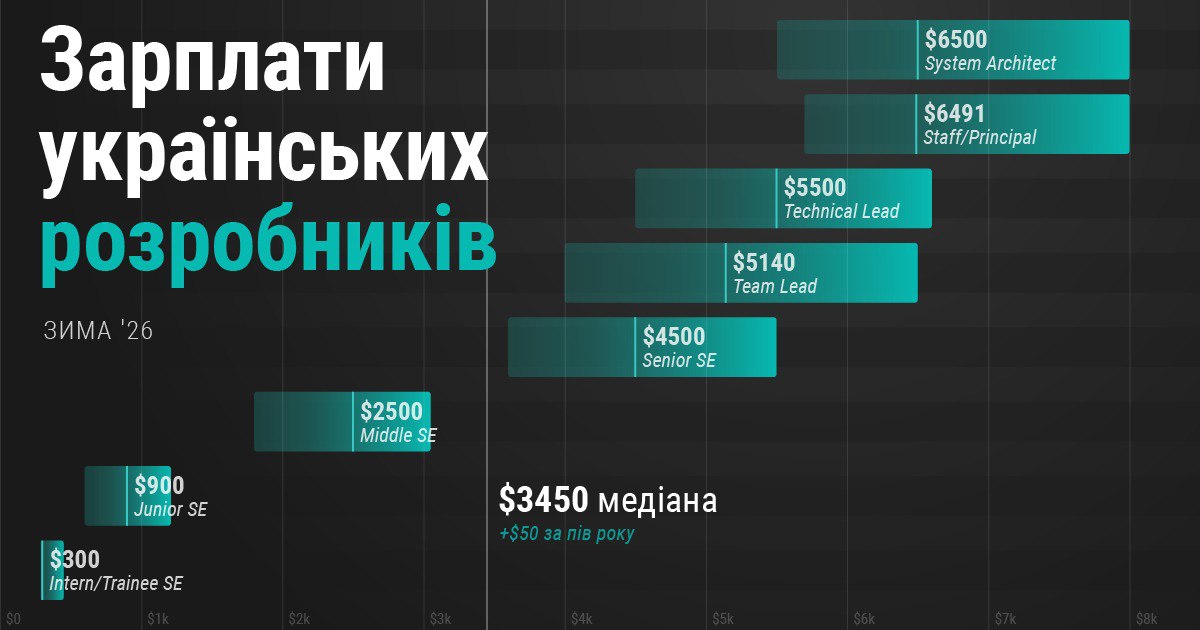“Responsibility Has Increased”: Kyivstar CEO on Going Public During Wartime
On August 29, Kyivstar marked its entry to Nasdaq with a bell ringing ceremony in New York. Traditionally, founders or CEOs press the button to signal the start of trading. This time, Kyivstar’s president, Oleksandr Komarov, did the honors in front of Ukrainian government officials, representatives from Veon, and members of the company’s team. After the ceremony, Komarov took part in a Q&A session, where he fielded questions about Kyivstar’s public debut. He wrapped up the conversation by saying, «By and large, nothing has changed; only the responsibility has increased. Otherwise, we continue to develop Kyivstar according to the previously defined plan.» Still, several notable points emerged. Scroll.media’s editor, who attended the session, highlighted the most interesting takeaways.

Kyivstar’s valuation
Kyivstar went public at a valuation of $2.2 billion. Within two weeks, its market cap grew to $2.8 billion, peaking at more than $3.5 billion.
Komarov stressed that Russia’s full-scale invasion had a massive downward impact on the company’s valuation. He noted that today’s price already reflects those risks. As of this writing, Kyivstar stock trades at around $12.50 per share. Two independent audits commissioned by Veon suggest the price could rise to $14–18 over the next 12 months. (Disclaimer: this is not financial advice from either Veon or Scroll.media; any investment is at your own risk.)
Despite the «war discount,» Komarov said Kyivstar trades at an EBITDA multiple of roughly 4x — comparable to Eastern European telecom operators. Both management and investors understand the geopolitical risks and have repeatedly flagged potential volatility in the stock price.
Dividends
Dividend policy depends entirely on restrictions from Ukraine’s National Bank (NBU) on currency outflows. Until those restrictions are lifted, no dividends will be discussed.
Komarov added that Kyivstar plans to reinvest all available funds in Ukraine — about $400 million — into business development and M&A, rather than setting them aside for future dividend payouts.
Investors and growth strategy
During its roadshow, Kyivstar openly discussed both risks and opportunities with major investors — already baked into its current valuation.
Komarov emphasized that Kyivstar is no longer just a mobile operator through ventures like Uklon, Helsi, Kyivstar.Tech, and its cloud business, more than 10% of company revenue now comes from digital services, a figure expected to grow. The once «mono-business» has transformed into a multi-product company, with M&A playing a key role in expanding its portfolio.
Kyivstar is also evolving into a holding structure, with Komarov now serving as president of the group.
Management and structure
The company has refreshed its supervisory board and opened a new office in Dubai. The office will house Kyivstar Group’s legal and financial functions — a team of about 10 people. With its Nasdaq listing, the company will face even greater scrutiny in financial reporting.
Buying shares in Ukraine
Technically, Ukrainians can buy Kyivstar shares, but only by registering with a foreign broker. Before the full-scale invasion, it was possible to invest more directly from within Ukraine. Due to NBU restrictions, that option is currently unavailable. Kyivstar is in talks with regulators to simplify access for Ukrainian investors, but for now, foreign brokers remain the only route — with limitations on currency withdrawal.
The road to Nasdaq
Kyivstar’s IPO decision dates back to 2021. The war forced delays, but even in the worst-case scenarios modeled by independent experts, the company still had a viable path to going public, so management chose to proceed despite the circumstances.
The process wasn’t easy. Veon struggled to find independent auditors familiar with Ukraine’s unique environment. Another challenge was securing a SPAC partner: Kyivstar held 10 meetings with different firms before selecting Cohen Circle, which offered the best terms and, importantly, expressed confidence in Kyivstar’s long-term success.
“Responsibility Has Increased”: Kyivstar CEO on Going Public During Wartime
On August 29, Kyivstar marked its entry to Nasdaq with a bell ringing ceremony in New York. Traditionally, founders or CEOs press the button to signal the start of trading. This time, Kyivstar’s president, Oleksandr Komarov, did the honors in front of Ukrainian government officials, representatives from Veon, and members of the company’s team. After the ceremony, Komarov took part in a Q&A session, where he fielded questions about Kyivstar’s public debut. He wrapped up the conversation by saying, «By and large, nothing has changed; only the responsibility has increased. Otherwise, we continue to develop Kyivstar according to the previously defined plan.» Still, several notable points emerged. Scroll.media’s editor, who attended the session, highlighted the most interesting takeaways.

Kyivstar’s valuation
Kyivstar went public at a valuation of $2.2 billion. Within two weeks, its market cap grew to $2.8 billion, peaking at more than $3.5 billion.
Komarov stressed that Russia’s full-scale invasion had a massive downward impact on the company’s valuation. He noted that today’s price already reflects those risks. As of this writing, Kyivstar stock trades at around $12.50 per share. Two independent audits commissioned by Veon suggest the price could rise to $14–18 over the next 12 months. (Disclaimer: this is not financial advice from either Veon or Scroll.media; any investment is at your own risk.)
Despite the «war discount,» Komarov said Kyivstar trades at an EBITDA multiple of roughly 4x — comparable to Eastern European telecom operators. Both management and investors understand the geopolitical risks and have repeatedly flagged potential volatility in the stock price.
Dividends
Dividend policy depends entirely on restrictions from Ukraine’s National Bank (NBU) on currency outflows. Until those restrictions are lifted, no dividends will be discussed.
Komarov added that Kyivstar plans to reinvest all available funds in Ukraine — about $400 million — into business development and M&A, rather than setting them aside for future dividend payouts.
Investors and growth strategy
During its roadshow, Kyivstar openly discussed both risks and opportunities with major investors — already baked into its current valuation.
Komarov emphasized that Kyivstar is no longer just a mobile operator through ventures like Uklon, Helsi, Kyivstar.Tech, and its cloud business, more than 10% of company revenue now comes from digital services, a figure expected to grow. The once «mono-business» has transformed into a multi-product company, with M&A playing a key role in expanding its portfolio.
Kyivstar is also evolving into a holding structure, with Komarov now serving as president of the group.
Management and structure
The company has refreshed its supervisory board and opened a new office in Dubai. The office will house Kyivstar Group’s legal and financial functions — a team of about 10 people. With its Nasdaq listing, the company will face even greater scrutiny in financial reporting.
Buying shares in Ukraine
Technically, Ukrainians can buy Kyivstar shares, but only by registering with a foreign broker. Before the full-scale invasion, it was possible to invest more directly from within Ukraine. Due to NBU restrictions, that option is currently unavailable. Kyivstar is in talks with regulators to simplify access for Ukrainian investors, but for now, foreign brokers remain the only route — with limitations on currency withdrawal.
The road to Nasdaq
Kyivstar’s IPO decision dates back to 2021. The war forced delays, but even in the worst-case scenarios modeled by independent experts, the company still had a viable path to going public, so management chose to proceed despite the circumstances.
The process wasn’t easy. Veon struggled to find independent auditors familiar with Ukraine’s unique environment. Another challenge was securing a SPAC partner: Kyivstar held 10 meetings with different firms before selecting Cohen Circle, which offered the best terms and, importantly, expressed confidence in Kyivstar’s long-term success.





